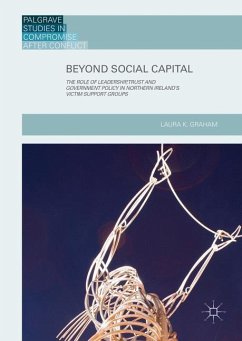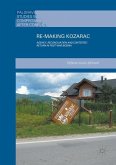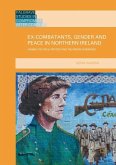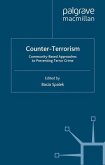Drawing on lessons from civil society in Northern Ireland, Beyond Social Capital examines the limitations of social capital theory in deeply divided societies. It draws on an ethnographic study of victim support groups and evidence from policymakers in Northern Ireland to reconceptualize the traditional bonding-bridging distinction in social capital theory. The role of leadership is particularly significant, as the book highlights the complex and compelling ways in which leadership supports and shapes the activities, practices and motivations of the victim self-help industry in Northern Ireland. Multiple dimensions of this industry are explored, including: social and victim policy; private, statutory, and voluntary sector collaboration; the political motivations of victim support groups; and the types of social capital being built in victim groups and the impact that this social capital has on victims and wider elements of the peace process.
Importantly, Laura K. Graham challenges the prevailing notion that all forms of social capital are inherently good for civic organizations and associational life. Instead, a new form of social capital existing in divided and post-conflict societies is advanced. This form of social capital, called 'dysfunctional bonding', may have negative impacts, causing distrust within and outside a group and can be particularly problematic for those traumatized by political conflict. With international relevance, this book willbe of great interest to those working in post-conflict studies as well as victim studies.
Importantly, Laura K. Graham challenges the prevailing notion that all forms of social capital are inherently good for civic organizations and associational life. Instead, a new form of social capital existing in divided and post-conflict societies is advanced. This form of social capital, called 'dysfunctional bonding', may have negative impacts, causing distrust within and outside a group and can be particularly problematic for those traumatized by political conflict. With international relevance, this book willbe of great interest to those working in post-conflict studies as well as victim studies.








